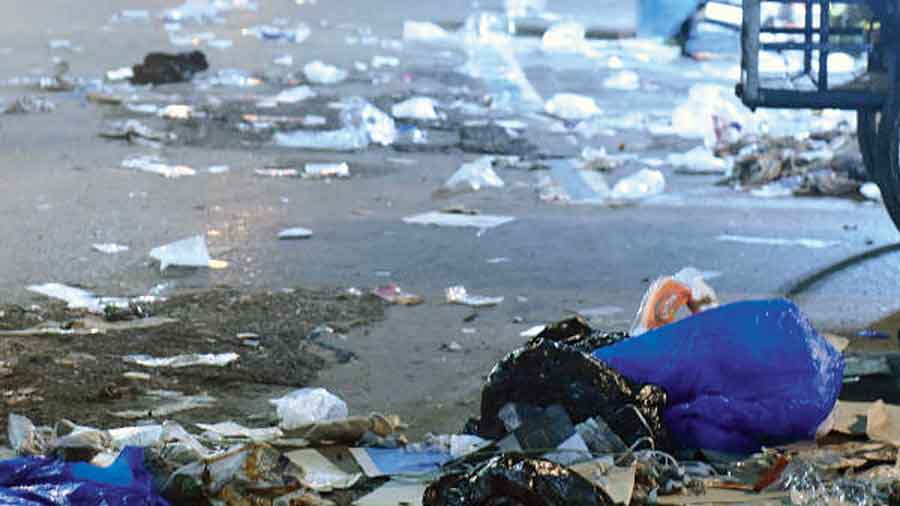A survey across 11 states and two Union territories across the Himalayan region in the country suggests that while most people were aware of the existence of plastic bag ban in their areas, most believe the ban has not succeeded.
Zero Waste Himalaya and Integrated Mountain Initiative, a platform that works on the issue of waste in the mountains, recently conducted an online survey with 315 responses representing Bengal, Sikkim, Assam, Tripura, Nagaland, Mizoram, Himachal Pradesh, Uttarakhand, Meghalaya, Arunachal Pradesh, Manipur and Union territories of Ladakh and Jammu and Kashmir.
The report published by Roshan Rai, Priyadarshinee Shrestha and Rajendra P. Gurung, core members of Zero Waste Himalaya, suggests that while 82 per cent of the respondents were aware of the existence of the plastic bag ban in their region, only 19 per cent felt the ban was highly effective.
“Among the respondents of the survey, as many as 35 per cent felt that the ban was not effective at all while a significant 31 per cent said the ban was effective only for some time,” said Rai.
While Arunachal Pradesh, Assam, Jammu and Kashmir, Nagaland, Sikkim, Tripura and Uttarakhand have imposed a complete ban on plastic bags, Ladakh and Bengal have imposed a partial ban. There are no bans in Manipur, Meghalaya and Mizoram.
In Bengal, plastic carry bags are banned in Darjeeling and the Sunderbans. The ban in Darjeeling was imposed way back in 2001. Sikkim had started the ban in 1998.
Studies suggests while the Plastic Waste Management Rules 2016 prescribed a minimum thickness for plastic bags at 50 microns, the survey revealed that thin plastic bags of less than 50 microns are widely found, with 52 per cent respondents indicating this.
Over the years, there seems to be a rise in the use of non-woven polypropylene bags, a new avatar of plastic bags which deceptively look like cloth but are made of plastic.
“A new line of bags labelled biodegradable, compostable and oxo-biodegradable are the latest addition. But they do contain plastic. Their use was found to be more in Arunachal Pradesh, Sikkim, Tripura and J&K,” said Rai.
Promoted as the so-called greener alternative, these bags are problematic. as they are just plastic with additives that accelerate the disintegration into microplastics, the study states.
Single-use plastics, intended to be used only once and thrown away or recycled, like grocery bags, food packaging, bottles, straws, containers, cups still dominate in terms of presence.
“Shopkeepers charging users extra for plastic bags could be a way to discourage their use, but 45 per cent of respondents said there were no charges,” said Rai.











